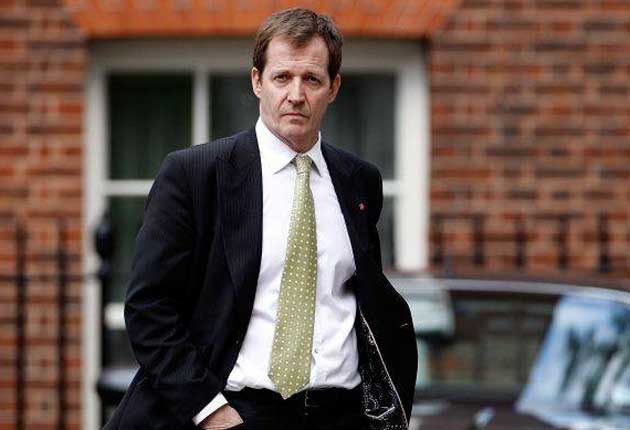Alastair Campbell leaks were 'unguided missile' ahead of Iraq war

Alastair Campbell was an "unguided missile" who leaked information from MI6 to journalists in his attempts to justify the invasion of Iraq, according to a senior intelligence officer who gave evidence to the Chilcot Inquiry.
Right-wing parts of the British media, including those print titles in Rupert Murdoch’s News International stable, were regularly supplied with material by Tony Blair’s chief spin doctor in the run up to the war.
Previously secret evidence released yesterday showed that the SIS (Secret Intelligence Service) "suffered" from the former Downing Street communications director's tendency to have "rushes of blood to the head" and brief journalists without consulting its staff.
A senior intelligence officer, referred to in the redacted papers as "SIS2", said some of the damage may have been self-inflicted. He said it was a "fair criticism" that the spy agency was "probably too eager to please" No 10. "The pressure to generate results, I fear, did lead to the cutting of corners," he told the inquiry. "I think perhaps SIS was at that point guilty of flying a bit too close to the sun."
The officer continued: "We found Alastair Campbell, I think, an enthusiastic individual, but also somewhat of an unguided missile." He added: "We also, I think, suffered from his propensity to have rushes of blood to the head and pass various stories and information to journalists without appropriate prior consultation.”
In testimony to the inquiry last year, former MI5 head Baroness Manningham-Buller criticised the way Tony Blair's government used "fragmentary" intelligence, largely from MI6, to make the case for war.
"If you are going to go to war, you need a pretty high threshold, it seems to me, to decide on that and I think there is very few who would argue that the intelligence was not substantial enough on which to make that decision," she said.
Earlier this year it was revealed that a senior defence intelligence officer had written to the inquiry to contradict Mr Campbell’s evidence that the dossier was not designed to “make the case for war”.
Major-General Michael Laurie, who was head of intelligence collection for the Defence Intelligence Agency, wrote: “I had no doubt at that time this was exactly its purpose and these very words were used. We knew at the time that the purpose of the dossier was precisely to make a case for war, rather than setting out the available intelligence. I and those involved in its production saw it exactly as that, and that was the direction we were given.”
Join our commenting forum
Join thought-provoking conversations, follow other Independent readers and see their replies
Comments